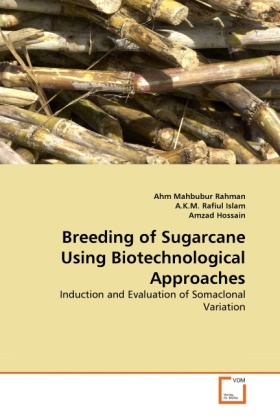Description
Product details
| Authors | Hossain, Amzad Hossain, Shafiqul Islam, A K Rafiul Islam, A. K. M. Rafiul Islam, AKM Rafiul Islam, Ahm M. Rahman, Ahm Mahbubu Rahman, Ahm Mahbubur Rahman |
| Publisher | VDM Verlag Dr. Müller |
| Languages | English |
| Product format | Paperback / Softback |
| Released | 27.07.2011 |
| EAN | 9783639371970 |
| ISBN | 978-3-639-37197-0 |
| No. of pages | 192 |
| Subject |
Natural sciences, medicine, IT, technology
> Biology
> Botany
|
Customer reviews
No reviews have been written for this item yet. Write the first review and be helpful to other users when they decide on a purchase.
Write a review
Thumbs up or thumbs down? Write your own review.

